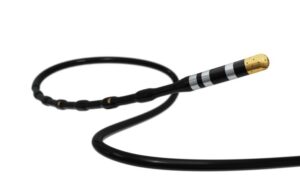
The company said its FDA and CE mark submissions follow successful clinical results in an ongoing trial. Last month, Stereotaxis announced the first Magic treatments in the European trial supporting its submissions. According to a news release, the company observed “stellar” initial results in the first 20 procedures.
Stereotaxis reports 100% accurate efficacy and no adverse events with the ablation catheter in the study so far.
Magic is a robotically navigated magnetic ablation catheter that performs minimally invasive cardiac ablation procedures. It incorporates design features meant to enhance patient safety, procedural effectiveness and efficacy and the physician experience.
Stereotaxis projects commercial availability for the community of robotic electrophysiologists once the regulatory clearances come through.
“We are excited to have reached this significant milestone for Stereotaxis and for the physician community that is pioneering the frontiers of robotics in electrophysiology,” said David Fischel, Stereotaxis chair and CEO. “We look forward to working collaboratively with the regulatory agencies during their review of our submissions and hope to make the benefits of Magic available to patients and physicians in the near future.”
Stereotaxis also reports its fourth-quarter results
The St. Louis-based company — which featured on our list of 10 surgical robotics companies you need to know — reported $4.6 million in revenue for the quarter ended Dec. 31, 2023. That marked a 37% year-over-year sales decline and came up $3.1 million shy of Wall Street expectations.
Stereotaxis recorded a net loss of $5 million for the quarter.
Fischel attributed some of the financial shortcomings to the loss of royalties and recurring catheter shortages from the company’s partner. He said this highlighted the importance of overcoming key product dependencies. Those headwinds counteracted growth in robotic system revenue for the year, though.
Expected milestones include further development for the company’s smaller, highly accessible robot, Fischel said. The company began formal testing for that system and anticipates European approval by mid-year, with FDA clearance anticipated in the second half of the year.
Stereotaxis also expects commercial launches later this year for a guidewire that expands its technology into several new indications, a comprehensive product ecosystem in China and a digital surgery solution enabling broad operating room connectivity.
“We enter 2024 having made significant progress in realizing our strategic transformation. This is the year in which we expect all the key puzzle pieces to come together, setting us up for breakout growth to follow,” Fischel said.

